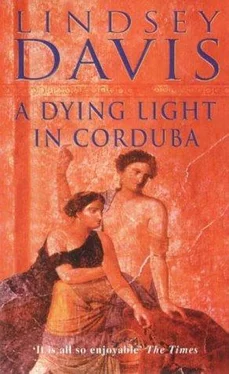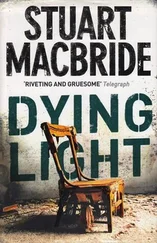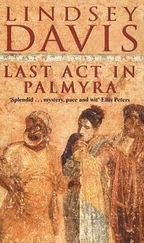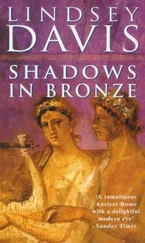Lindsey Davis - A dying light in Corduba
Здесь есть возможность читать онлайн «Lindsey Davis - A dying light in Corduba» весь текст электронной книги совершенно бесплатно (целиком полную версию без сокращений). В некоторых случаях можно слушать аудио, скачать через торрент в формате fb2 и присутствует краткое содержание. Жанр: Исторический детектив, на английском языке. Описание произведения, (предисловие) а так же отзывы посетителей доступны на портале библиотеки ЛибКат.
- Название:A dying light in Corduba
- Автор:
- Жанр:
- Год:неизвестен
- ISBN:нет данных
- Рейтинг книги:3.5 / 5. Голосов: 2
-
Избранное:Добавить в избранное
- Отзывы:
-
Ваша оценка:
- 80
- 1
- 2
- 3
- 4
- 5
A dying light in Corduba: краткое содержание, описание и аннотация
Предлагаем к чтению аннотацию, описание, краткое содержание или предисловие (зависит от того, что написал сам автор книги «A dying light in Corduba»). Если вы не нашли необходимую информацию о книге — напишите в комментариях, мы постараемся отыскать её.
A dying light in Corduba — читать онлайн бесплатно полную книгу (весь текст) целиком
Ниже представлен текст книги, разбитый по страницам. Система сохранения места последней прочитанной страницы, позволяет с удобством читать онлайн бесплатно книгу «A dying light in Corduba», без необходимости каждый раз заново искать на чём Вы остановились. Поставьте закладку, и сможете в любой момент перейти на страницу, на которой закончили чтение.
Интервал:
Закладка:
Stertius bent over one axle hub. 'I bet you've never seen one of these before,' he claimed proudly. 'Look, centurion: this commodious vehicle that I'm letting you have at negligible rates is fitted with an Archimedes hodometer!'
Dear gods, he was a mechanical enthusiast. A flywheeland-twisted-rope man. The kind of helpful character who asks for a drink of water then insists on mending your well- tackle that has been out of use for three generations. He was almost certainly building himself a complete siege warfare catapulta in the garden of his house.
The wheel hub over which we were crouched in the dust had been fitted with a single-tooth gear. Every rotation of the carriage wheel caused this gear to engage with a flat disc set vertically at right angles above it, which was cut into numerous triangular teeth. Each wheel rotation moved the disc on by a notch, eventually operating a second gear which in turn moved on a second disc. That one, which was horizontal, had been drilled with small holes, upon each of which was balanced a smooth pebble. Every operation of the top disc moved up a new hole, allowing a pebble to drop through into a box below, which Stertius had secured with a fierce padlock.
The top disc rotates one hole for every four hundred revolutions of the carriage wheel – which takes one Roman mile!'
'Amazing!' I managed to utter. 'What beautiful workmanship! Did you construct this yourself?'
'I do a bit of metalwork,' Stertius admitted shyly. 'I can't think why these are not fitted as standard on all hired vehicles.'
I could. 'Wherever did you get the idea, Stertius?'
'A toad-building with the Third Augusta in bloody Numidia and Mauretania. We used something like it for measuring accurate positions for the mileposts.'
'Amazing!' I repeated feebly. 'Helena Justina, come and look at this; it's an Archimedes hodometer!'
I wondered how many more colourful eccentrics I was doomed to meet in Baetica.
'There's just one thing that has to be understood,' Stertius warned me as Helena dutifully dragged herself over to inspect his mileage measurer. 'You'll find Marmarides can turn his hand to most things, but he won't deliver babies!'
'That's all right,' Helena assured him, as if we were a couple who had plans for all contingencies. Didius Falco is a Roman of the traditional, hardy type. He can plough his fields with his left hand, while his right delivers twins. At the same time he can spout a finely phrased republican oration to a group of senatorial delegates, and invent an ode in praise of the simple country life.'
Stertius gave me an approving look. 'Handy, eh?'
'Oh, I do my best,' I answered, with traditional Roman modesty.
XVIII
It took nearly a week's driving to Corduba. Stertius had charged us a deposit based on a main journey of a hundred and twenty-five Roman miles. I reckon he was accurate. He must have checked it already with his miraculous hodometer. I guessed that crazy man had measured every road in Baetica, and he owned marked-up itineraries to prove it.
Nobody of status ever went the way we did. I had not planned it myself. Once we had chosen the sea trip there were further options available. One sailing route went north of Corsica then came south hugging the coast of Gaul and Tarraconensis; it was famous for shipwrecks. The alternative nipped between Corsica and Sardinia; provided we didn't run aground on either island and fall into bandits' eager hands it had appeared a better bet. It probably was for most people, though not those prone to emptying their stomach at the first ripple of a wave.
What most folk did then was to sail right past Malaca to Lades, and take a boat up the grand River Baetis. I had decided against that for excellent reasons: I wanted to disembark as soon as possible. I also planned to arrive in Corduba in an unexpected manner that would bamboozle my Baetican suspects. So I had pored over route-charts and picked out my landfall on the eastern coast at Carthago Nova, proposing then to drive along the Via Augusta, the main inland highway through southern Hispania. This formed the final link of the great Via Herculana; it was supposedly the immortal hero's route across Europe to the Gardens of the Hesperides, imbued with romantic associations as the pathway to the ends of the earth. Better than that, it would be a fast paved road with well-equipped mans ios.
Another reason for my choice was Carthago Nova itself -the centre of esparto grass production. My mother, to whom I owed a belated bribe for nursing Anacrites, had supplied me with a more than usually detailed list of presents to bring home, including baskets, mats and even sandals for her numerous grandchildren. A decent Roman lad respects his ma.
Mine would be unsurprised to discover that I had failed her. She would have to make do with a few jars of garum from Malaca, for the captain of our vessel had unexpectedly decided the winds were wrong for the landing he had previously promised.
'He's an idiot! I should have found out earlier -' 'How could you?' asked Helena. 'He would never have admitted "Yes, your honour; I'm an idiot."'
By the time I realised, he had sailed right past Carthago Nova and was halfway to Gades. He seemed pretty pleased with himself. I forced him to put in at Malaca. From here a road to Corduba did exist, though not a good one. It would be shorter than coming all the way west from Carthago, but the grim quality of the road would probably use up the extra time. Time was just what I could not afford.
Once in the carriage we started well enough, but the level plain with a few dry, pointy little hills quickly gave way to barren grey slopes speckled with sparse vegetation and creased by dry watercourses. Soon we met a range of hills with almost vertical crags; although we traversed them without incident, I had some bad moments riding on top with Marmarides as we passed slowly through the landscape of deep ravines and precipitous rocks. Further inland, the unpopulated countryside changed again to gently rolling ground. We came to the first olive trees, their gnarled trunks rising from low sprigs of greenery, set out with good spaces between them in the stony soil. In the richer, redder ground that came later the olives were interspersed with blocks of fruit trees, grain, or vegetable fields.
Settlements, or even farms, were few. There were mansios, of a meagre kind, where the innkeepers all looked astonished to have their bare little rooms inspected by a senator's daughter in an advanced state of pregnancy. Most expected Romans to be travelling with an entourage. Most Romans would indeed ensure they took a bustle of friends, freedmen and slaves. We found it easiest to pretend we had lost our escort temporarily.
There was no point trying to bluff Marmarides, of course. He knew we were without companions, and it afforded him much amusement. 'You come to Baetica for a nice summer holiday, lord?'
'That's right. I'm hoping for a sun-drenched spell in an esparto rope hammock. As soon as I can, I'll be stretched out under an olive tree with the dog at my feet and a jug of wine.'
Stertius must have picked him up in North Africa; he was as black as the Baetican olives. I tried to forget I was distrusting everyone I met and accept him as a welcome addition, though I wished he had been as broad as his master (Stertius was built like a bacon pig). Marmarides had a neat slim build, whereas I wanted a type who went into a fight smiling, and came out of it five minutes later having wrung the oppositions' necks.
Our driver's face creased into satirical wrinkles and he laughed at us breathily. 'Stertius reckons you're a government agent, and your lady's been sent abroad to have her baby in disgrace!'
'I see you're frank talkers in Baetica.'
'You want any help with your agenting?' he offered hopefully.
Читать дальшеИнтервал:
Закладка:
Похожие книги на «A dying light in Corduba»
Представляем Вашему вниманию похожие книги на «A dying light in Corduba» списком для выбора. Мы отобрали схожую по названию и смыслу литературу в надежде предоставить читателям больше вариантов отыскать новые, интересные, ещё непрочитанные произведения.
Обсуждение, отзывы о книге «A dying light in Corduba» и просто собственные мнения читателей. Оставьте ваши комментарии, напишите, что Вы думаете о произведении, его смысле или главных героях. Укажите что конкретно понравилось, а что нет, и почему Вы так считаете.












